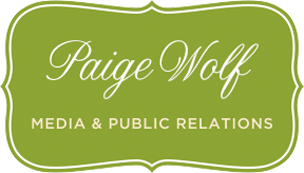With all the wonderful green progress that has been made by existing and new companies, one thing that has been disheartening is the amount of “greenwashing,” by businesses. This term has been coined to describe the practice of companies disingenuously spinning their products and policies as environmentally friendly.
In December 2007, environmental marketing firm TerraChoice released a study called “The Six Sins of Greenwashing.” According to the study, some of the most common sins of greenwashing are:
• Sin of the Hidden Trade-Off: e.g. “energy-efficient” electronics that contain hazardous materials.
• Sin of No Proof: e.g. Products claiming to be “certified organic,” but with no verifiable certification.
• Sin of Vagueness: e.g. Products claiming to be 100% natural when many naturally-occurring substances are hazardous, like arsenic and formaldehyde. I think this sin also applies for all bottled-water campaigns which imply that bottle water is somehow healthier than tap water (see my post on filtered water for more on this).
• Sin of Irrelevance: e.g. Products claiming to be CFC-free, even though CFCs were banned 20 years ago. This reminds me of the carb-free craze years ago when things like water were labeled “no carbohydrates.”
• Sin of Lesser of Two Evils: e.g. organic cigarettes or “environmentally friendly” pesticides
I think the latest “sin” is companies that try to market green initiatives that while positive, are not newsworthy. I recently read about a PR firm lauding its greening initiatives because they replaced their old carpet with new carpet made from recycled material. While their choice in purchase should be commended, unless the carpet was truly damaged, the greenest thing to do would actually be to just clean it. But that aside, something like this is what all smart consumers should do, not something they should get a medal for.
As the green movement goes more mainstream every day, it has thankfully become a way of life for most people. Companies that install recycle bins and turn off their computers at night should not be sending press releases about it – it should just be second nature.
Of course, businesses like mine are meant to applaud green trailblazers and innovators, and I am not opposed to giving my neighbors a pat on the back for setting out their blue bins. But companies which are truly eco-friendly can back up their practices with honest initiatives and a serious commitment to improving their environmental impact.
As someone who creates marketing and publicity campaigns for a living, I insist on working with clients who are honest about their green initiatives and take active steps to improve the quality of life in their communities. I want the media and the public to recognize their efforts – but I promise never to send a press release about my clients’ using CFL lightbulbs.












